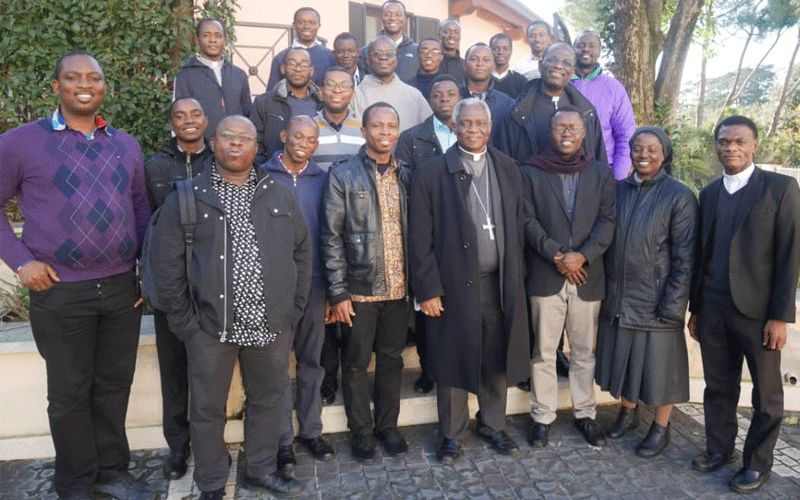He added, “We are sad to hear people are dying every day. Today (March 23) alone over 600 have lost their lives to COVID-19, and we know and we hear the hospitals are full, the doctors and health personnel are overwhelmed.”
According to the Priest, the daily death toll and the increasing number of those infected “simply reveals how helpless we all are before this virus.”
“The streets are deserted, many shops closed and there is unusual silence in the ever busy, crowded and noisy Rome. That alone is terrifying enough,” he said and added, “the good news is, all of us from Ghana are safe as far as our latest contacts amongst us confirm,”
The students, he said, were now confined to participating in online lectures following the closure of physical classrooms. This, the priest noted, was unfavorable for students who needed libraries and those who needed to submit their thesis by the end of June.
As for Sr. Hagar Zuuri of the Sisters of Mary Immaculate (SMI) from Ghana’s Wa Diocese studying Religious Sciences, the situation of COVID-19 in Rome is a scary experience that has taken a turn that the students least expected.
(Story continues below)
“We are very scared about the whole issue because we didn’t see it getting to that extent. Doctors are finding it difficult to control, because each day the rate of new cases keeps on increasing and many have lost their lives,” said Sr. Hagar.
Sharing his experience, Fr. Michael Quaicoe, Doctoral Student of Canon Law from the Archdiocese of Cape Coast, explained to ACI Africa that when caught in the pandemic, he felt “a sense of powerlessness.”
“As a Ghanaian priest studying in Rome, my feeling about this pandemic, apart from the nostalgia of being away from home, seems similar to everyone residing here: a sense of powerlessness in the wake of an invisible yet ferociously deadly force.”
The Priest told his fellow Ghanaians in Rome to avoid instances of infections, “knowing that regardless of what one might wish to believe, our prior experiences must teach us that we will not be a priority in receiving care and treatment.”
He called on Bishops in the West African country who have students in Rome to show solidarity and fraternal charity with their religious who he explained were caught up in a dire situation.
On his part, Fr. David Selasie Agah, a member of the Ghana Province of the Society for Divine Word (SVD) studying Clinical Psychology at the Pontifical Gregorian University, expressed concern that “People you trust so much as confreres in your community have suddenly become suspects because you cannot tell who is infected, hence we have become strangers to each other.”








